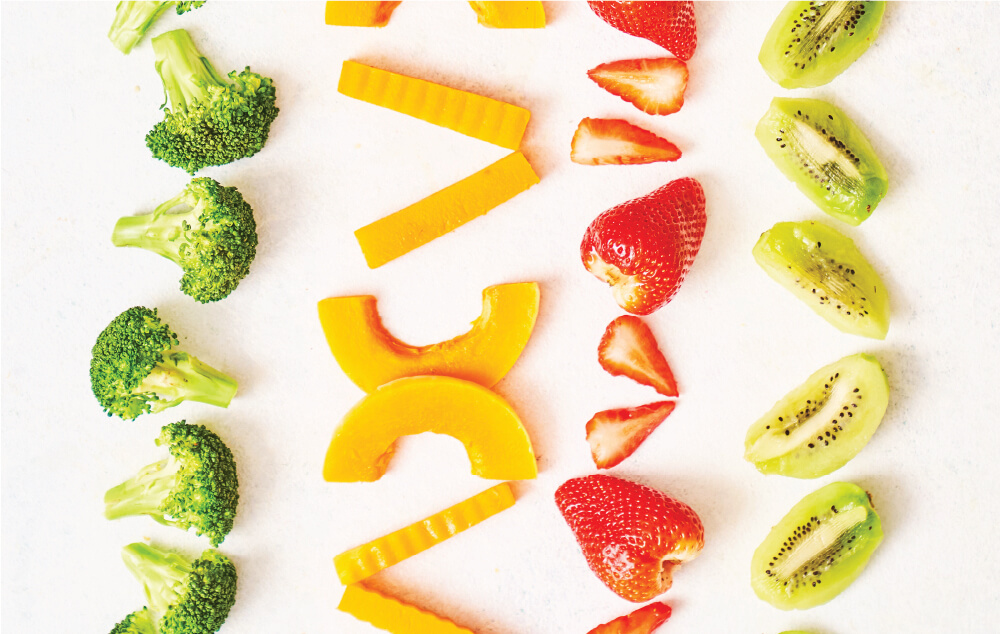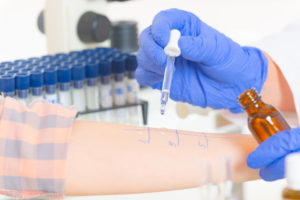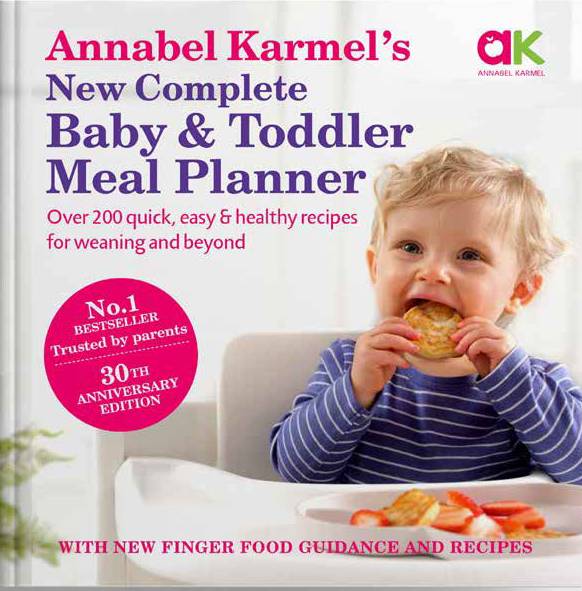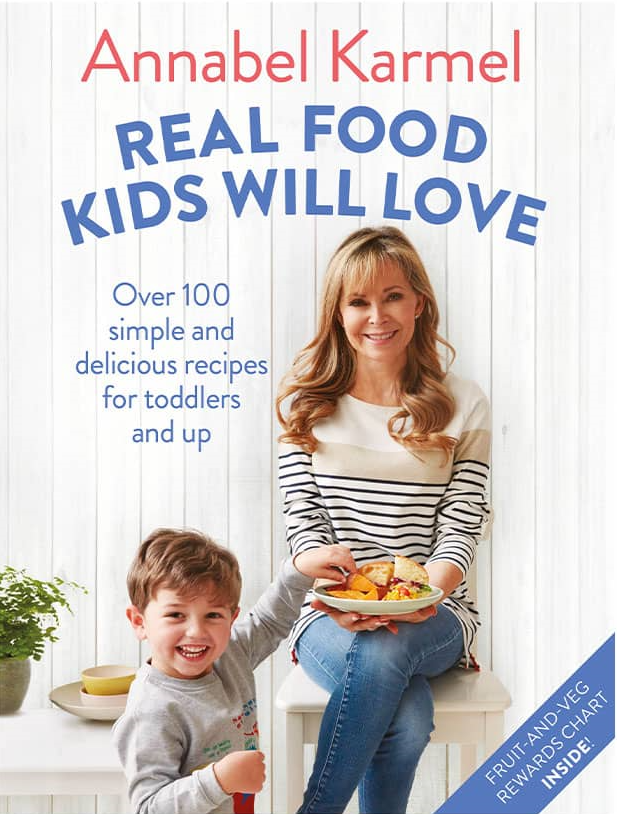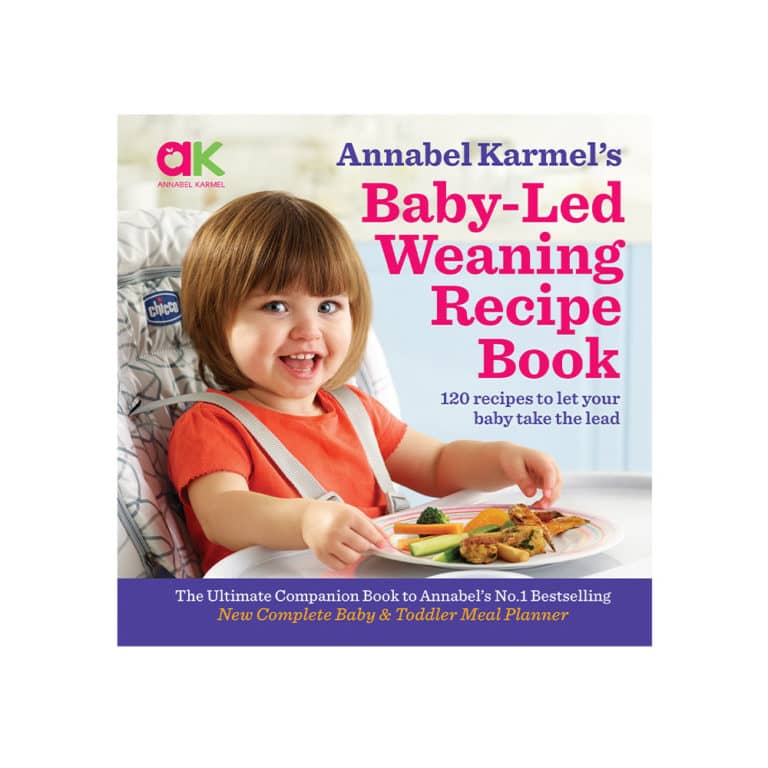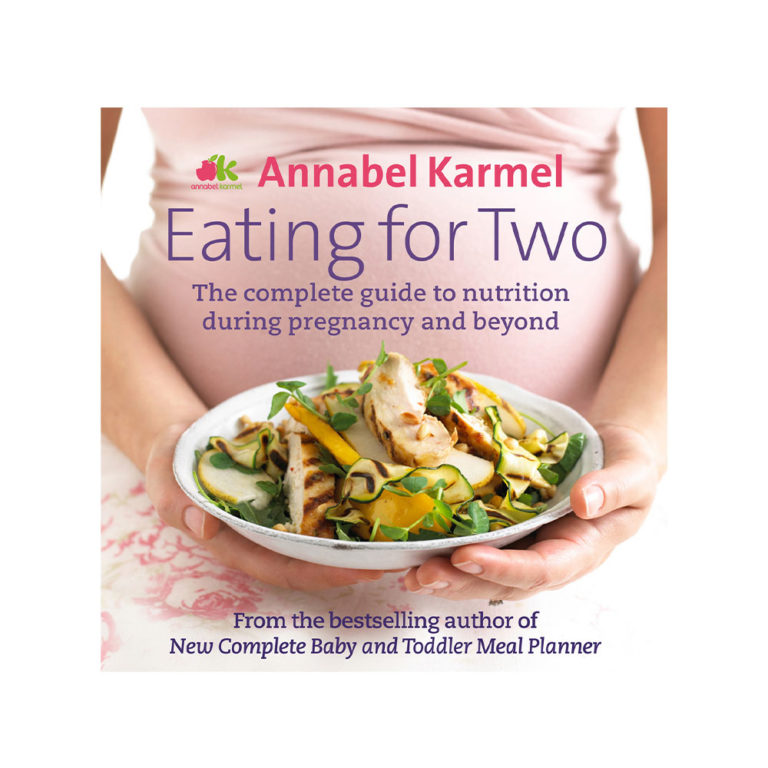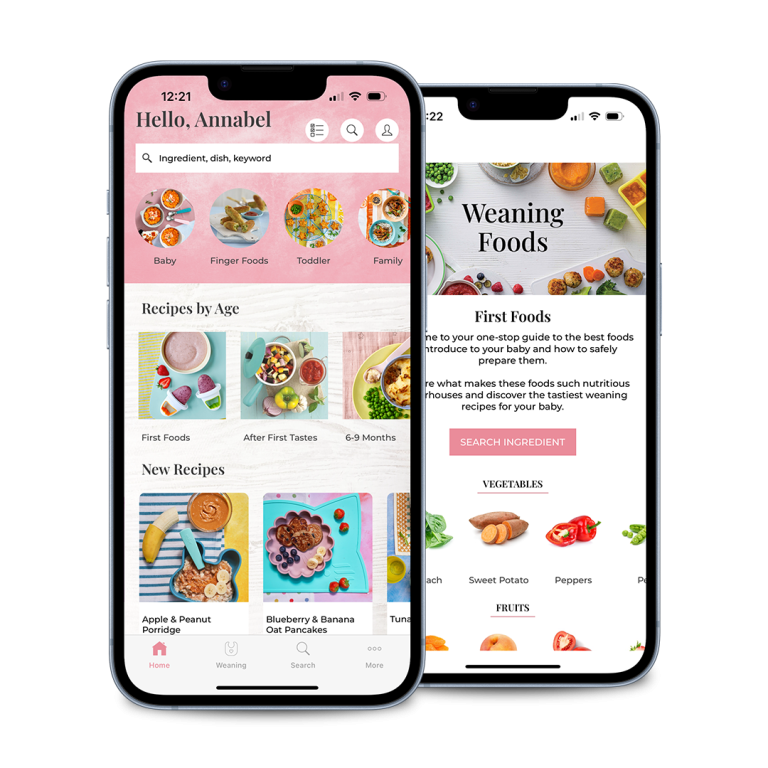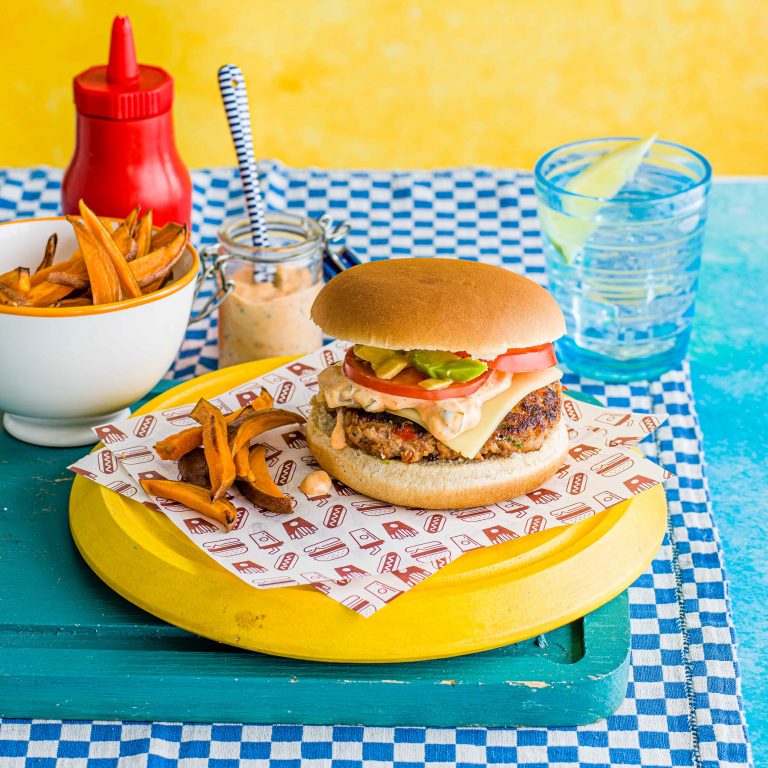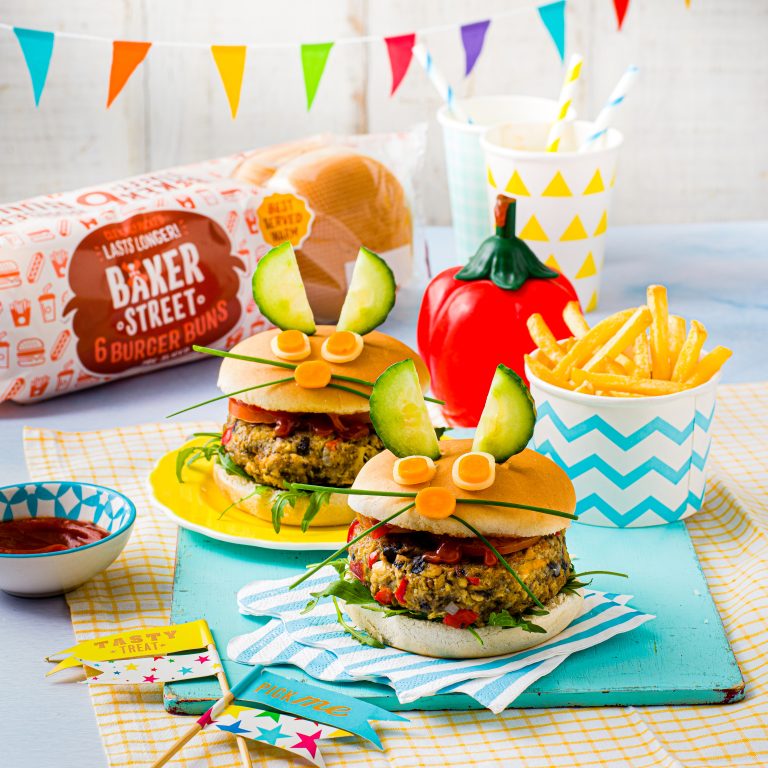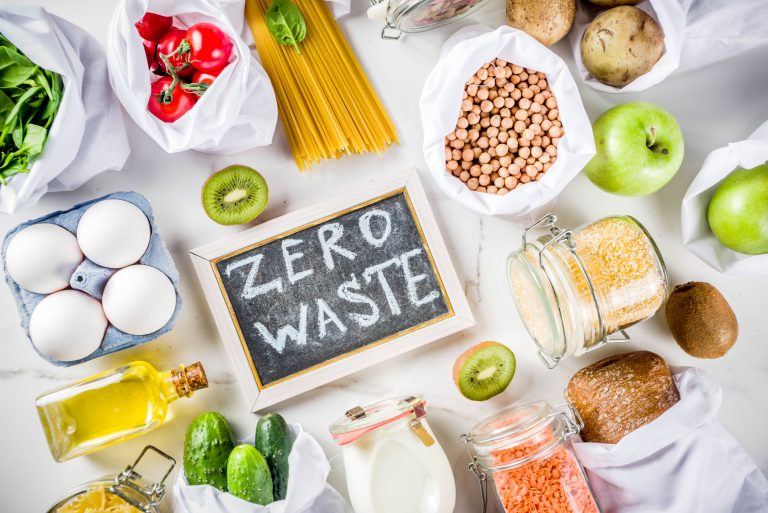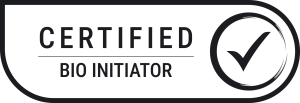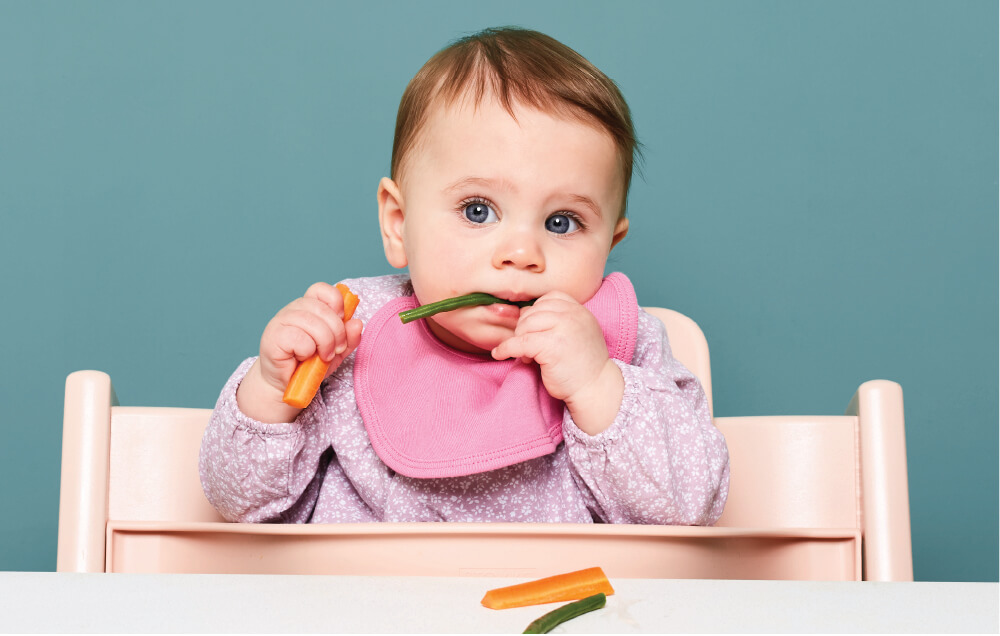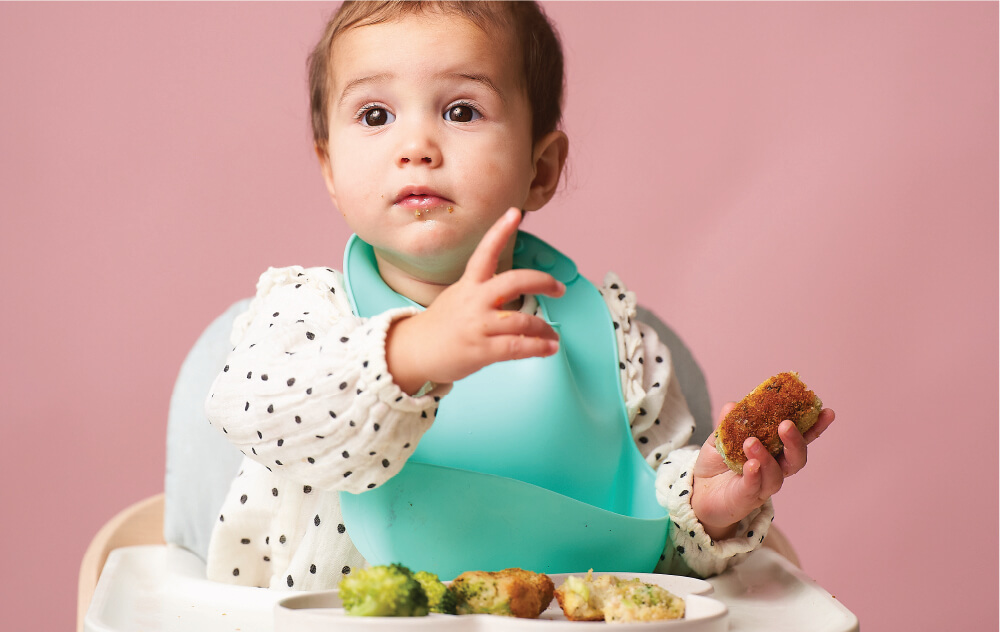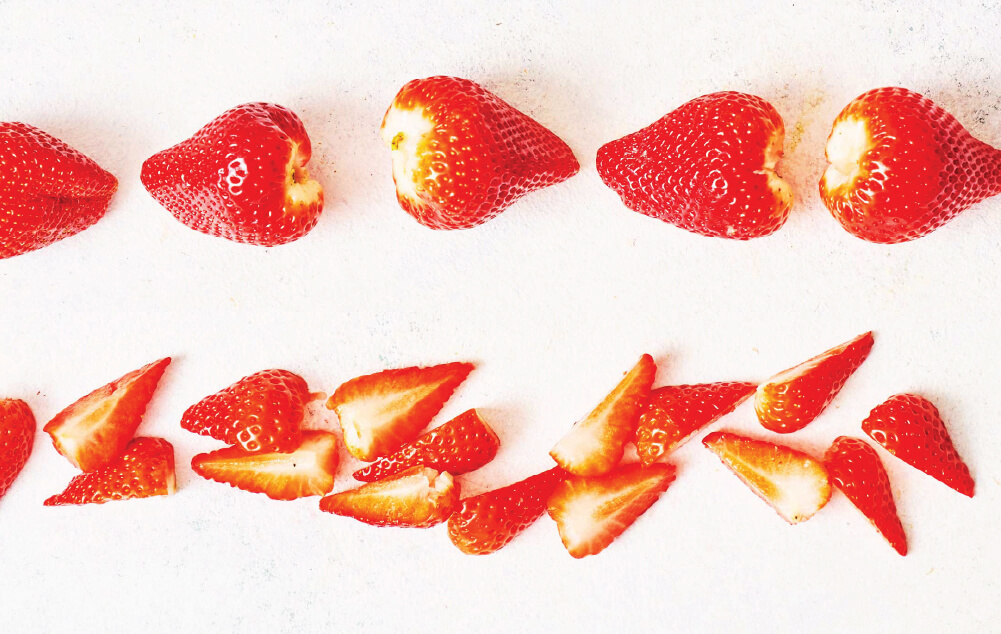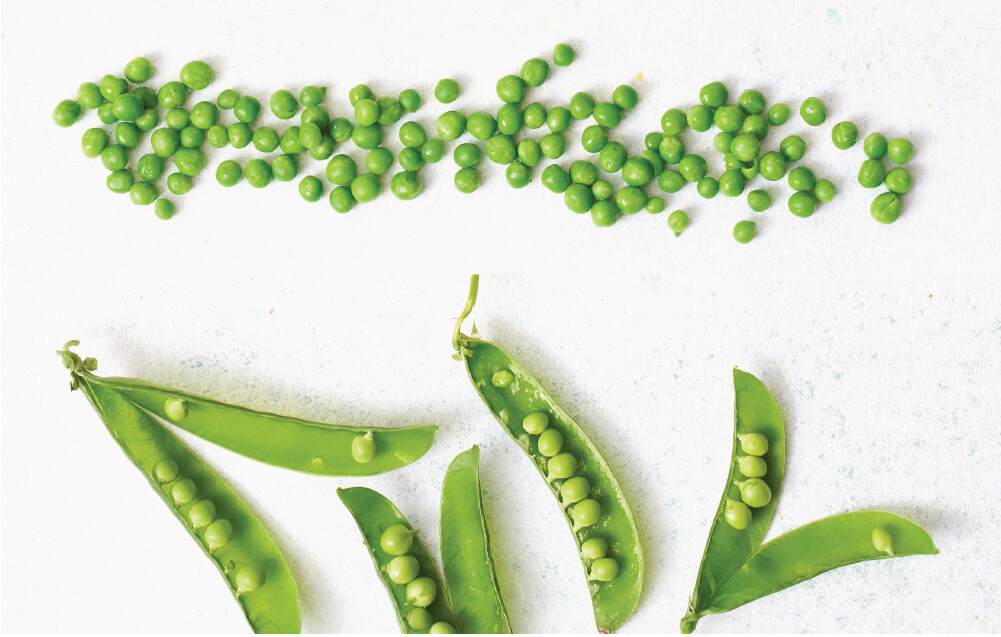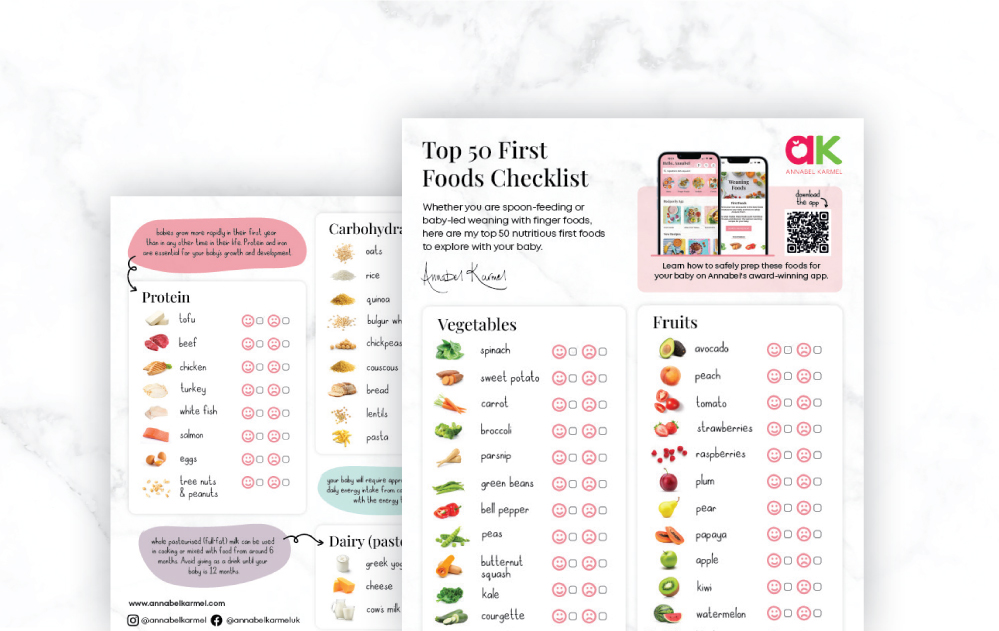Entering into the wonderful world of weaning can be daunting at the best of times, let alone when you’re also worried about your baby’s food allergies. Here Consultant Paediatric Allergist Professor Adam Fox shares his expert advice to help get you started; from how to safely go about introducing new foods, to highlighting those which most commonly cause an allergy – he’s got it covered.
Before you get started
The actual incidence of food allergy in babies is small – about 5-6% with many babies growing out of allergies like cow’s milk or egg allergy by the age of 2 or 3.
Food allergies are more common among babies and children from families with a history of allergy and babies who suffer from eczema are at a particularly high risk of suffering from food allergies. Babies who develop severe eczema before the age of three months are at very high risk, so you need to be particularly cautious and should discuss this with your doctor.
Avoiding particular foods during pregnancy or breastfeeding does not seem to make any difference in the changes of your baby having allergies. The best thing you can do is aim to breastfeed, exclusively for 4-6 months.
If your baby is at high risk e.g. has bad eczema, then it would be sensible to get allergy testing done just before weaning to help guide the safe introduction of common allergenic foods such as milk, egg and peanut.
Foods to consider
The most common cause of the immediate type of food allergy is egg, milk, nuts, fish, sesame and shellfish. Wheat, kiwi and soy are also important allergens. With delayed allergies, milk and soy are the most common causes. It is worth being aware of these common top allergic foods when you are weaning your baby and introducing them to new foods.
Introducing new foods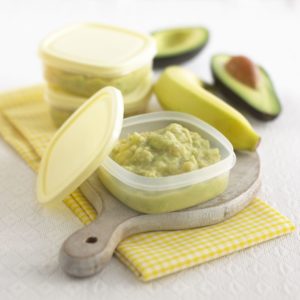
First foods should be simple, easy to digest, and unlikely to provoke an allergic reaction.
Start with a single ingredient, ideally a fruit or vegetable. Fruits such as apple, banana and avocado are a good place to start. Root vegetables like carrots, butternut squash and sweet potato and are very popular first foods; they have a naturally sweet flavour and can easily be puréed to a smooth texture. As a tip, try mixing them with a little breast or formula milk to ease the transition.
The new advice is not to withhold foods like eggs, milk and peanut from six months as giving these foods can actually help to reduce the risk of allergy developing in babies. The best thing you can do is to introduce new foods one by one. As reactions usually happen very soon after exposure, you don’t need to wait a huge amount of time between trying new food, just go at your baby’s own pace.
It is important not to delay the introduction of allergenic foods as this may increase the chance of allergy developing. In fact, there is now excellent evidence to suggest that early introduction of egg and peanut, from 17 weeks can reduce the risk of allergy.
This was initially based on an observation that in some countries such as Israel, for example, where peanut is used in a snack called Bamba given to infants. This early weaning with peanut seemed to relate to the level of peanut allergy being very low, even among high-risk children. In 2015, doctors at St Thomas’ Hospital in London were able to show that children at high risk of peanut allergy (they had eczema or egg allergy) who ate products containing peanuts between the ages of 4 and 11 months, and regularly thereafter, had a 70% reduced risk of developing an allergy to peanuts compared with children who ate them for the first time when they were older. This research has even led to a change in weaning guidance in the USA.
Allergy – immediate and delayed
There are two sorts of allergy:
Immediate allergies can cause a rash, swelling and hives within minutes of the food being eaten, usually around the mouth.
Delayed allergies can cause your baby to have eczema, reflux, colic or diarrhoea.
If you are concerned about either of these, you should always consult your GP.
Testing for allergies
Introducing foods one by one is the best way to get started with weaning, however, if there is a high risk of allergy e.g. eczema, then it may make sense to get your baby allergy tested before you do this but do not allow this to delay weaning progressing. This could involve either a skin prick test or a blood test.
